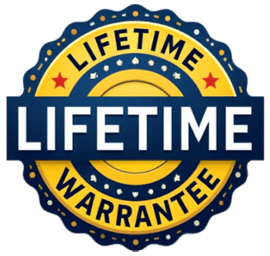The Dangers of Water Contamination in Florida After Hurricanes
In the aftermath of hurricanes, Florida faces a multitude of challenges, particularly concerning water safety. The state’s unique geography and climate make it susceptible to severe weather events, which can lead to significant water contamination issues. This article delves into the reasons why water can become hazardous in Florida following hurricanes, particularly focusing on the Manatee County area.
Understanding Water Contamination Risks
Water contamination can occur due to various factors, especially after a hurricane. The combination of heavy rainfall, flooding, and storm surges can introduce pollutants into the water supply. Here are some key aspects to consider:
1. Flooding and Runoff
When hurricanes strike, they often bring torrential rains that lead to flooding. This flooding can wash contaminants from streets, industrial sites, and agricultural areas into local water bodies. The runoff may include:
- Sewage and Waste: Overflow from sewage systems can occur, introducing harmful bacteria and viruses into the water supply.
- Chemicals and Pesticides: Agricultural runoff can carry fertilizers and pesticides into rivers and lakes, leading to toxic conditions for both humans and wildlife.
- Debris and Trash: Floodwaters can also transport debris, which may contain hazardous materials that further pollute the water.
2. Saltwater Intrusion
Hurricanes can cause storm surges that push saltwater into freshwater systems. This saltwater intrusion can have several detrimental effects:
- Impact on Drinking Water: Increased salinity can render freshwater supplies undrinkable, forcing communities to rely on bottled water or other sources.
- Damage to Aquatic Ecosystems: Saltwater can disrupt the natural balance of freshwater ecosystems, harming fish and plant life.
3. Infrastructure Damage
The infrastructure that supports water supply and sanitation can be severely impacted by hurricanes. Damage to water treatment facilities and pipelines can lead to:
- Contaminated Water Supply: If treatment plants are compromised, the water that reaches homes may not be adequately purified.
- Increased Repair Costs: Restoring damaged infrastructure can be costly and time-consuming, prolonging the period during which water safety is compromised.
The Role of Local Authorities
In the wake of a hurricane, local authorities play a crucial role in managing water safety. Their responsibilities include:
1. Damage Assessment
After a storm, officials conduct assessments to determine the extent of damage to water systems. This includes:
- Evaluating Treatment Facilities: Inspecting water treatment plants for structural integrity and operational capacity.
- Monitoring Water Quality: Testing water samples for contaminants to ensure safety before declaring the water supply safe for consumption.
2. Public Communication
Effective communication is vital during recovery efforts. Authorities must keep the public informed about:
- Boil Water Advisories: Residents may be advised to boil water before use to kill harmful pathogens.
- Updates on Repairs: Regular updates on the status of repairs and water quality testing help residents make informed decisions.
3. Emergency Response Plans
Local governments often have emergency response plans in place to address water safety issues. These plans may include:
- Distribution of Bottled Water: Providing safe drinking water to affected communities until the water supply is restored.
- Establishing Temporary Water Sources: Setting up temporary water stations for residents in need.
Health Implications of Contaminated Water
The health risks associated with consuming contaminated water are significant. Some potential health issues include:
1. Waterborne Diseases
Contaminated water can lead to outbreaks of waterborne diseases, such as:
- Cholera: Caused by bacteria found in contaminated water, cholera can lead to severe dehydration and even death if untreated.
- Giardiasis: This intestinal infection can result from drinking water contaminated with parasites, leading to gastrointestinal distress.
2. Long-Term Health Effects
Prolonged exposure to contaminated water can have lasting health effects, including:
- Chronic Illnesses: Long-term exposure to certain chemicals can increase the risk of chronic diseases, including cancer.
- Reproductive Issues: Some contaminants can affect reproductive health, leading to complications during pregnancy.
Community Preparedness and Resilience
Building community resilience is essential for mitigating the impacts of hurricanes on water safety. Here are some strategies:
1. Education and Awareness
Educating residents about the risks associated with water contamination can empower them to take proactive measures. This includes:
- Understanding Boil Water Advisories: Residents should know how to properly boil water and recognize when advisories are issued.
- Recognizing Signs of Contamination: Awareness of unusual odors, colors, or tastes in water can prompt residents to report issues immediately.
2. Infrastructure Improvements
Investing in infrastructure improvements can enhance the resilience of water systems. This may involve:
- Upgrading Treatment Facilities: Modernizing water treatment plants to withstand severe weather events can help ensure continued safe water supply.
- Enhancing Drainage Systems: Improving stormwater management systems can reduce flooding and runoff, minimizing contamination risks.
3. Community Engagement
Engaging the community in preparedness efforts fosters a sense of ownership and responsibility. This can include:
- Volunteer Programs: Organizing community clean-up events post-hurricane can help mitigate debris and pollution.
- Emergency Response Training: Providing training for residents on emergency response can enhance community resilience.
Conclusion
The aftermath of hurricanes poses significant challenges for water safety in Florida, particularly in areas like Manatee County. Understanding the risks associated with water contamination is crucial for residents and local authorities alike. By prioritizing education, infrastructure improvements, and community engagement, Florida can enhance its resilience against future storms and protect its vital water resources.
In summary, while hurricanes can disrupt water safety, proactive measures can mitigate the risks and ensure that communities remain informed and prepared.




